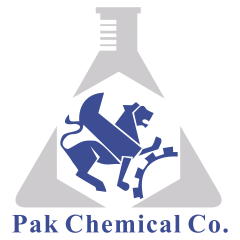Polyvinyl chloride, more commonly known as PVC, is a widely used plastic with applications in diverse industries, from construction and packaging to healthcare and electronics. A critical component of PVC production involves the use of additives, notably PVC metallic soaps. Despite the name, these ‘soaps’ have nothing to do with personal hygiene. Instead, they represent an essential group of compounds in the PVC manufacturing process, serving as stabilizers and lubricants to enhance the performance and longevity of the final products. This article explores the role, types, and significance of PVC metallic soaps.
Understanding PVC Metallic Soaps
PVC metallic soaps are metal salts of fatty acids. In layman’s terms, they are the product of a reaction between a metal and a type of fat. This ‘soap’ terminology arises from the similarity in chemical structure to the soap used in cleaning, although the applications are vastly different.
In Polyvinyl chloride processing, metallic soaps are primarily used as heat stabilizers. During the production process, PVC can degrade under heat, leading to discolouration, reduction in physical properties, or even the release of harmful hydrogen chloride gas. Metallic soaps help prevent this degradation, ensuring the produced PVC is of high quality and safe for use.
Types of PVC Metallic Soaps
Historically, PVC stabilizers were based on lead, cadmium, and tin compounds. However, due to health and environmental concerns linked with these metals, their use has largely been phased out in many regions.
Presently, calcium/zinc based stabilizers dominate the market. These alternatives offer comparable performance while posing less risk to human health and the environment. Additionally, organic-based stabilizers, including certain types of metallic soaps, are becoming more prevalent due to their even lower toxicity profiles and biodegradable properties.
Applications of PVC Metallic Soaps
The use of this product is pervasive in industries that use PVC. In construction,used in PVC pipes, window frames, and flooring. In healthcare industry, employed in products such as IV bags and tubing. Where the use of metallic soaps ensures the material’s durability and safety. In packaging, preferred for its rigidity and clarity, with metallic soaps enhancing these characteristics.
Challenges and Future Directions
Despite the benefits, the use of metallic soaps is not without controversy. The shift from lead and cadmium to safer alternatives like calcium/zinc has been crucial. But there is still room for improvement.
The most significant challenge is to find stabilizers that are not only effective but also safe for humans and the environment. Current research is exploring even safer alternatives, including bio-based stabilizers. We can expect the evolution of it to continue in line with our growing understanding of environmental and health impacts. And the development of safer, more sustainable plastics.
Conclusion
In summary, PVC metallic soaps play an integral role in modern industries, contributing significantly to the production of high-quality, durable, and safe PVC products. While challenges lie ahead, including addressing environmental and health concerns, ongoing research and innovation promise exciting advancements in this field. Understanding PVC metallic soaps and their function is crucial not just for those involved in the manufacturing sector but also for consumers who use PVC products daily. It offers insight into how science and technology work together to enhance product performance and safety while minimizing potential harm to humans and the environment.
